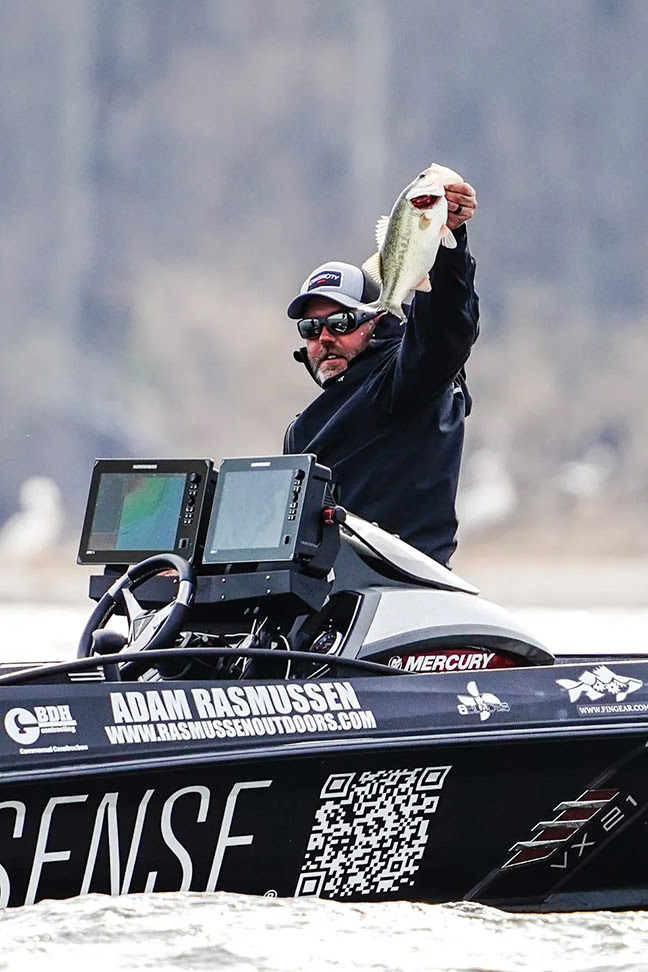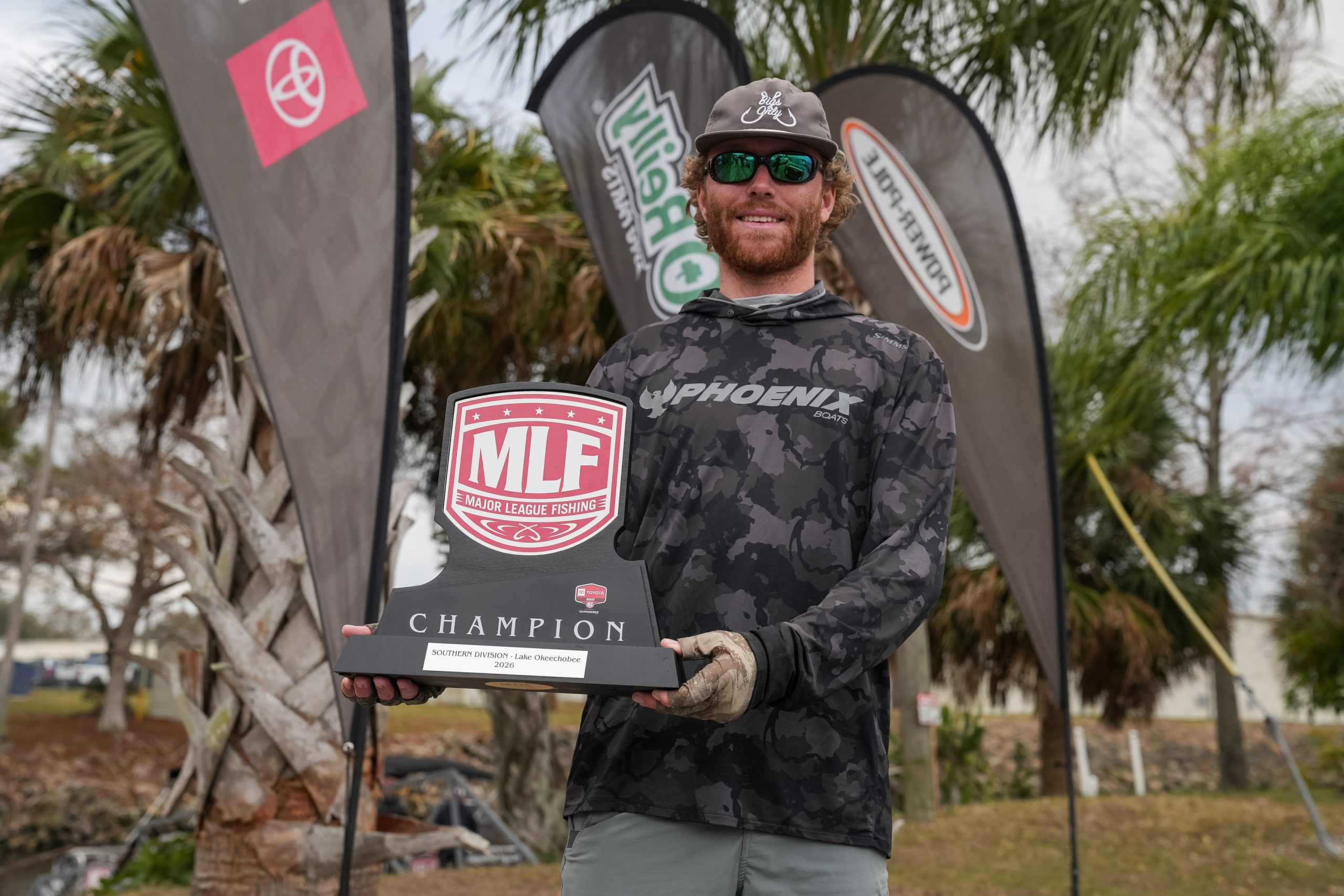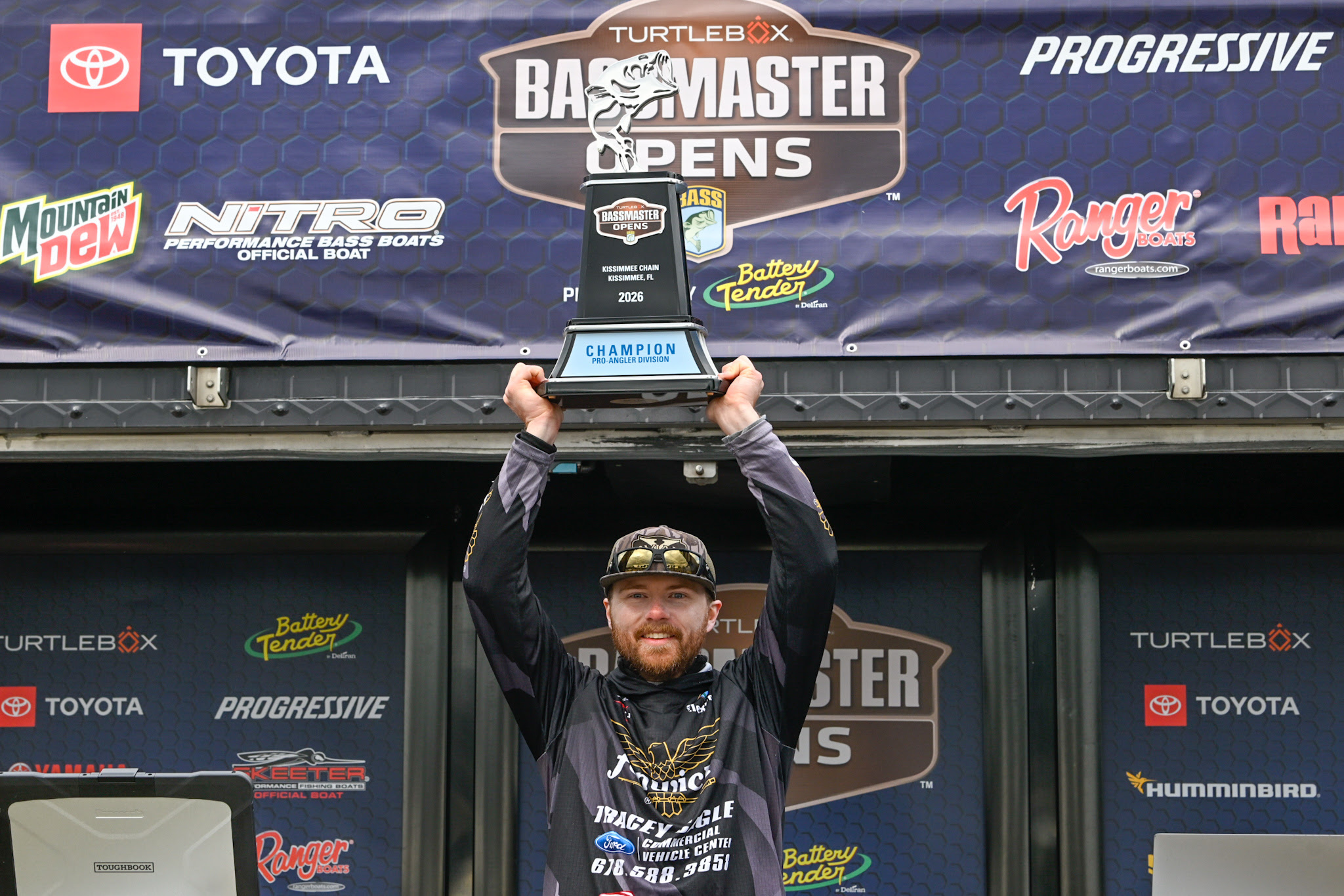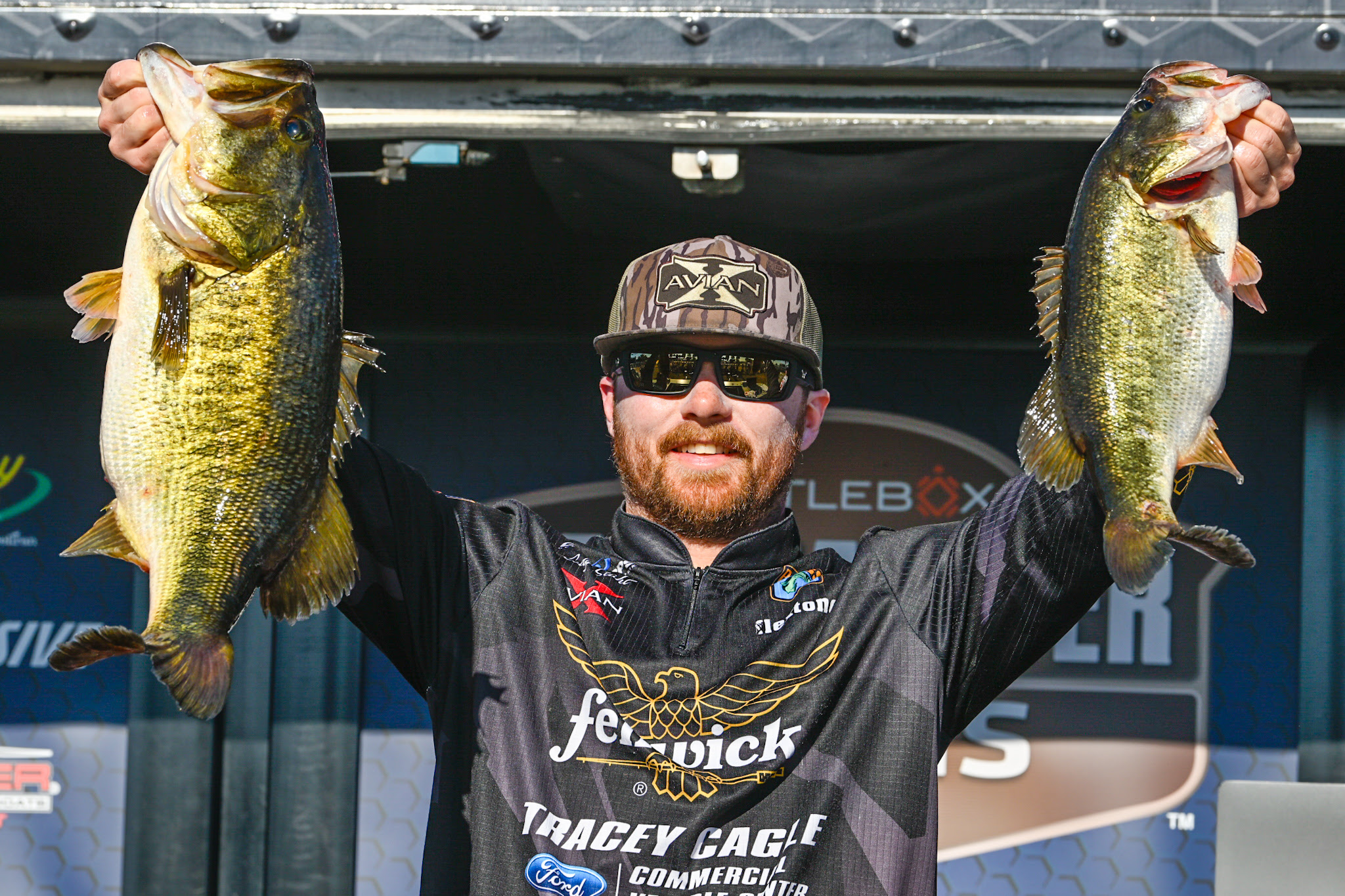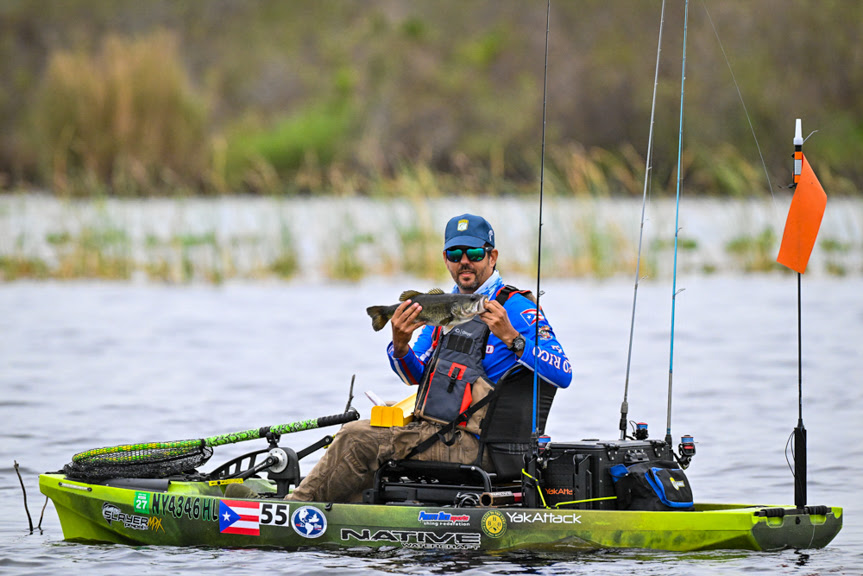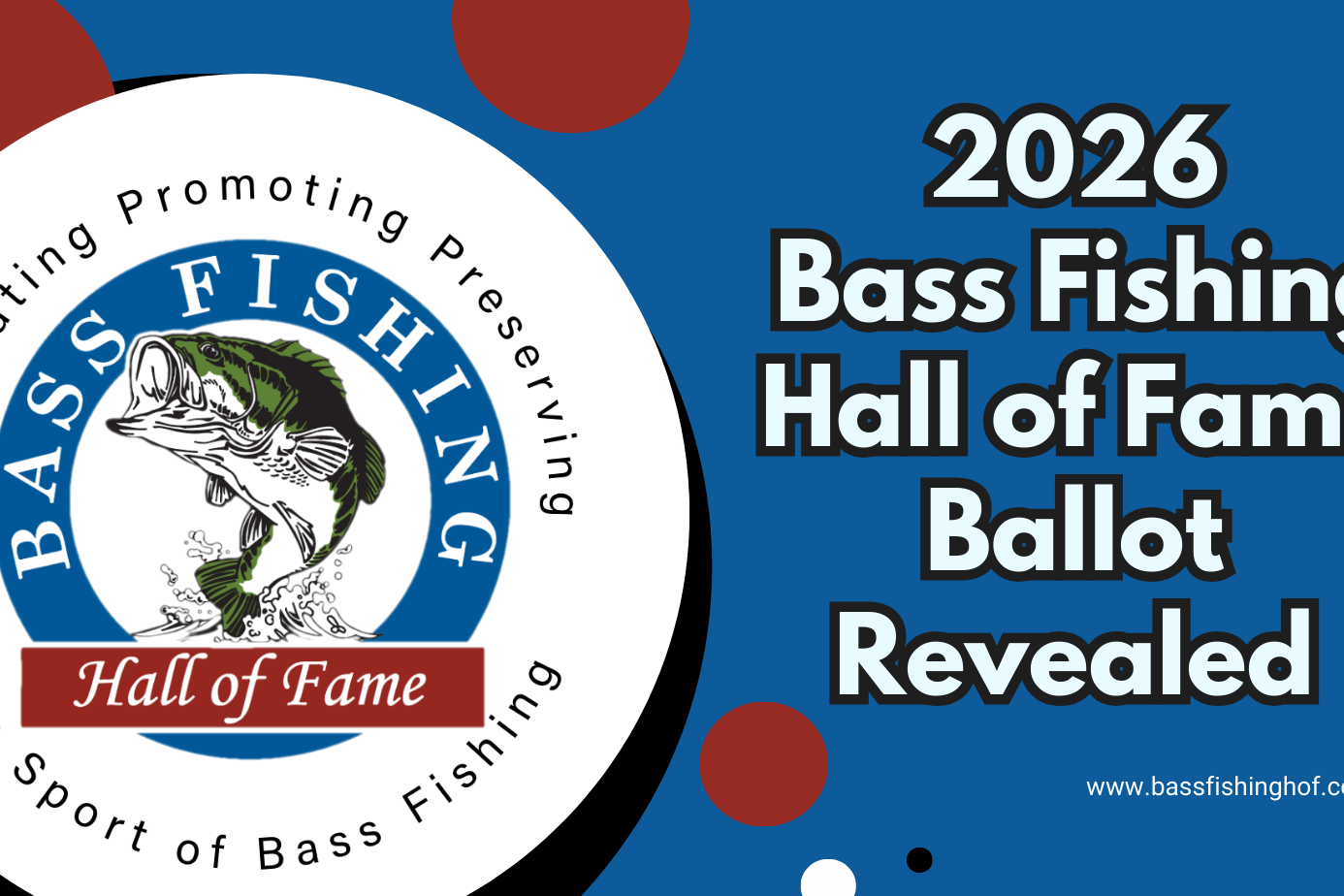Fine-Tuning for Success
|
Whitewater Fishing pro ambassadors drill down into the details of what elevated them in the 2024 Bassmaster Classic. |
|
MUSKEGON, Mich. (April 4, 2024) – Nicknamed the “Super Bowl of Bass Fishing,” there is no higher reward for bass anglers worldwide than to qualify for the BASSMASTER Classic. And to finish near the top with real-time changes in weather, fish behavior, and numerous other factors? That simply distills the “best of the best.” Whitewater Fishing is proud to announce that two of its pro ambassadors did precisely that. Both hailing from Wisconsin—yet competing on the southern waters of Grand Lake O’ The Cherokees near Tulsa, Oklahoma—Adam Rasmussen and Jay Przekurat, finished second and fourth, respectively. Adam Rasmussen, all-around expert tournament walleye and bass angler, charter captain, and veteran fishing guide, finished second with 55-4 for a $50,000 payday; 24-year-old bass pro, Jay Przekurat, finished fourth with 50-1 for $30,000. |
|
|
HUMMINBIRD MEGA Live |
|
Speaking to his MEGA Live use, Rasmussen has learned how to truly optimize it for results like his 2nd place finish on Grand. “I set my MEGA Live to 100 feet so I can stay as far away from the fish as possible, which is also about as far as you’re ever going to cast. I also use a Humminbird APEX 16 screen and a dedicated high-voltage lithium battery to get the best imaging possible—a Powerhouse 16v 80Ah. You can’t hook up your live imaging to a dual purpose cranking battery and expect good results.” |
|
|
HUMMINBIRD 360 |
|
In terms of specific FF sonar settings, he says a lot of anglers don’t realize what a difference water clarity, temperature, and other factors play in providing the best image possible, so he’s constantly adjusting range, sensitivity, and contrast manually depending on the waters fished. “That’s where a lot of anglers go wrong. They think you can just plug it in and turn it on and go fishing. That’s not the case, but you can get them dialed in. Generally, I like my MEGA Live contrast set between 6 and 8 and sensitivity between 12 and 16. And I really like looking out 100 feet. 360 looks even farther and will tell me where a brush pile is, then I shine it with forward-facing sonar as I inch closer, keeping the boat as far away as possible. This is especially important for catching the highly-pressured bass in southern waters.” |
|
|
Rasmussen’s Presentations “Second,” he says, “was having the right baits, which came down to jigs and spinnerbaits. Trailers on both were the new Rapala CrushCity baits, which I have 100% confidence in and have been fishing hard for over a year. I fished a craw on the back of the jig and a 3-inch minnow on the spinnerbait. All I carry now are Rapala’s CrushCity plastics. The baits work all over the country, so that gave me a lot of confidence.” |
|
|
Dressing For Spring Classic Success Rasmussen says he was without a clothing sponsor until he noticed what his friends and colleagues – anglers from The Next Bite and Jay and Jason Przekurat – were always out there testing. “So, I approached Whitewater and basically said ‘Give me a chance, this stuff was designed by people I trust’, and we’ve gone from there, well before the Classic,” remarks Rasmussen. “It’s 45 degrees outside right now, so I’m wearing the Whitewater Torque Heated Vest, which I also wore under the Great Lakes Pro Suit during the Classic. I didn’t take it off once while I was fishing Grand.” Rasmussen says that it didn’t really rain where he fished, it was “kind of cold and windy,” which the Great Lakes Pro Jacket and Bibs combated admirably. “On Day 2, I had the vest cranked up to high underneath the Great Lakes Pro jacket and bibs all day. On Day 3, I had enough blood going through my system that I didn’t need the vest.” |
|
Rasmussen mentions that he’s also a fan of the Whitewater Tamer Jacket and Bibs. “I was wearing that stuff down in Wichita when the high each day was only 45 degrees, and it kept me warm and protected from the wind.” According to Rasmussen, with Whitewater designers, the brand pros, and guides they worked with put all the “little, important things that tournament anglers demand” into the new apparel. He adds: “Plus, it works in all elements and is comfortable.” |
|
Continuing with comfort, Rasmussen concludes: “I don’t like to have big, baggy clothes on. I’m a bigger dude, too, so I don’t want to constantly get caught up on stuff in the boat when I move around. The fabric moves with you, so if I lay on the bow to grab a fish, there’s zero restriction. It’s got a snug fit that stretches with your fishing movements.” Speaking to his transition from working as a walleye pro, guide, and charter captain to the professional bass circuit, Rasmussen notes: “the biggest thing is just fishing. I’ve spent years on the water, so that helps, but fish are fish—they swim around and have to eat. They all have common characteristics like they need cover at certain times—and they react to weather changes. But they still have to eat.” |
|
|
JAY’S 4TH PLACE FINISH 24-year-old Whitewater Pro, Jay Przekurat, has made quite a name for himself in professional bass fishing over the past few years. Adding to that, he recently placed fourth at the Bassmaster Classic on Grand Lake. “It was a pretty challenging practice for me. I never really found anything that I thought was a winning pattern,” says Przekurat. “I was catching my fish on isolated brush, but I kind of knew with the wind picking up that probably wasn’t going to be the primary deal, because when the fish were around that brush, it was pretty calm.” He said that worked the first day of the tournament, which was calm, throwing a jerkbait in 4- to 8-feet of water. But on days two and three the situation changed. Przekurat offers: “I found a couple of spawning areas. There was good-looking pea gravel that tapered out into 4 feet of water or so. And I believe the fish were actually starting to spawn even though the water was chilly. And that’s how I caught my fish the remainder of the event.” |
|
Staying Comfortable for 4th In terms of apparel, Przekurat says it was cold the week before the tournament, especially the mornings, so he dressed in layers. Close to his skin, Przekurat wore a long-sleeve Whitewater shirt, followed by the Torque heated vest, and then a Whitewater Buoy sweatshirt, and the soon-to-be-released insulated Whitewater suit. “That the deal for me that week. And I also wore the Whitewater Wool Fingerless Gloves every single day.” During the event, Przekurat wore the Whitewater Tamer Suit when it was in the mid-50s to 60 degrees. “And then, obviously, I wore the Great Lakes Pro during the actual event when we had some rain on that first morning. That’s what I wore throughout the entire event until we got that one cold snap that I had to switch back to the insulated suit on that last day.” |
|
Images courtesy of B.A.S.S. |
